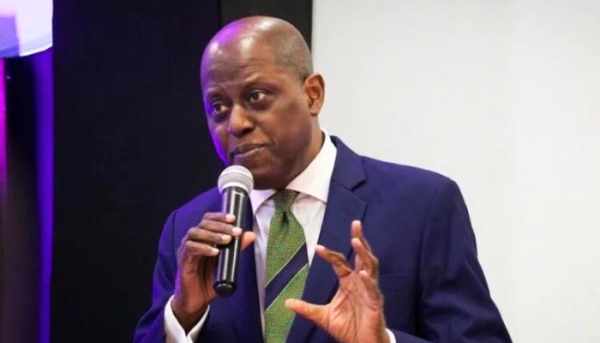The Governor of the Central Bank of Nigeria, Yemi Cardoso, has announced a reduction in market volatility, attributing it to the foreign exchange reforms undertaken by the apex bank.
Cardoso disclosed this during a press briefing in Washington, USA, following meetings with stakeholders from the World Bank.
He explained that the bank’s bold and unconventional reforms have boosted foreign exchange supply and increased remittance inflows into the country.
Additionally, he highlighted that the bank has curtailed arbitrage and speculative activities, while also eliminating the front-loading of foreign exchange demand.
“Since assumption of office a year ago, we’ve been focused on how to address inflationary concerns, restore investors confidence in financial markets and stabilizing the exchange rate. Enhancing the financial system, fostering financial inclusion and enhancing transparency in our monetary policy decisions and communication.
“We embarked upon bold and necessary reforms to return to the path of monetary policy orthodoxy as well as removed observed distortion in the foreign exchange market. Our efforts have yielded significant progress as volatility in the foreign exchange market has abated immeasurably and remittances have also increased significantly.
“We’ve achieved increased transparency and improved overall supply in the foreign exchange market, leading to reduced arbitrage, speculative activities and eliminated front loading of foreign exchange demand,” Cardoso stated.
Bank Recapitalization Policy
Cardoso also commented on the CBN’s recapitalization policy for deposit money banks.
According to the apex bank governor, the initiative aims to support a N1 trillion economy by 2030.
However, he acknowledged that much work remains to be done, stressing the importance of maintaining and consolidating current progress through an efficient market system and the deepening of financial inclusion.
“The CBN recapitalization policy has prompted deposit money banks to strengthen their financial position, a process expected to result in a more robust and resilient banking sector by March 2026. The exercise is meant to support the realization of the N1 trillion economy by 2030.
“We recognize that much is still needed to be done to fully achieve our goals. Our paths forward include consolidating and sailing current progress through an efficient market system and deepening financial and economic inclusion, particularly for small businesses, households, women and young people in Nigeria.
“By leveraging smarter technology and remote banking solutions, we aim to reduce transaction cost and expand financial access, ensuring that every Nigerian, regardless of location or demographics, can meaningfully participate in our involving financial system,” Cardoso said.
What you should know
Since last year, Nigeria has faced currency fluctuations in the foreign exchange market, triggering widespread instability across all sectors of the economy.
- At the height of the crisis, the naira depreciated to as low as N1,900/$ against the dollar earlier this year.
- However, the currency rebounded to approximately N1,600/$ in September, maintaining a range of around N1,650 with signs of stability.
- In response, the CBN introduced several measures and directives to manage the currency, including crackdowns on the informal FX market, such as BDC operators, and the crypto market.
- This month, the naira has shown relative stability against the dollar, accompanied by a significant rise in foreign exchange inflows into the reserves.
[Nairametrics]


